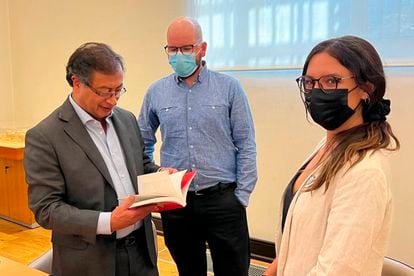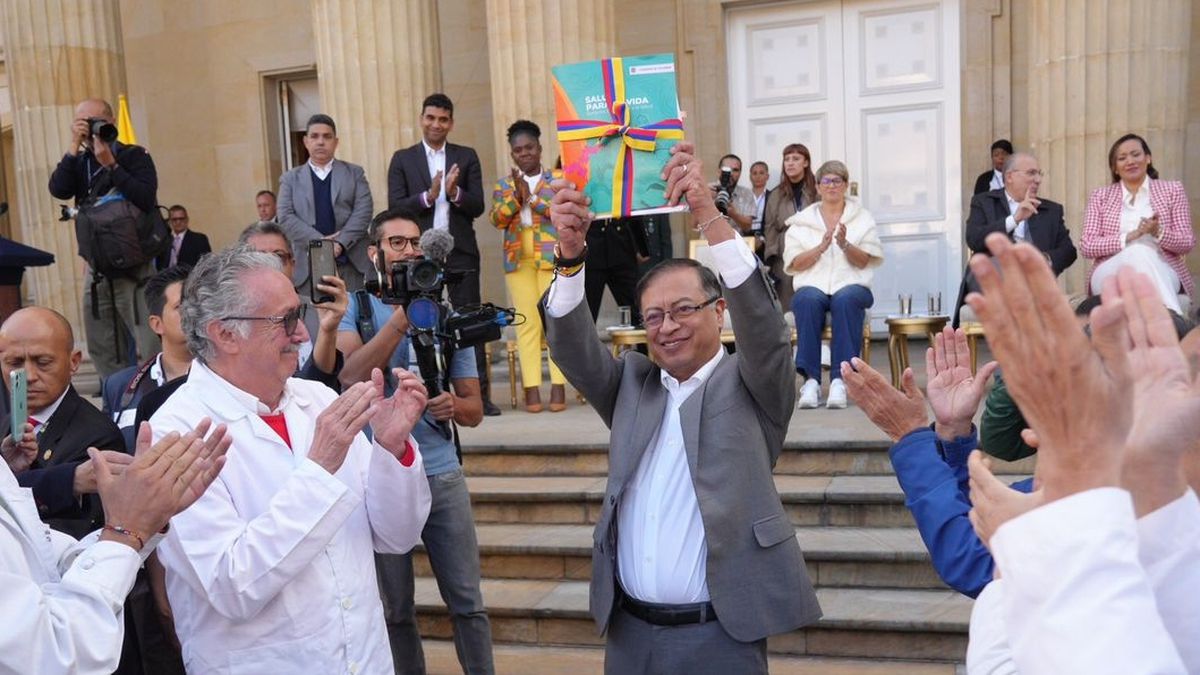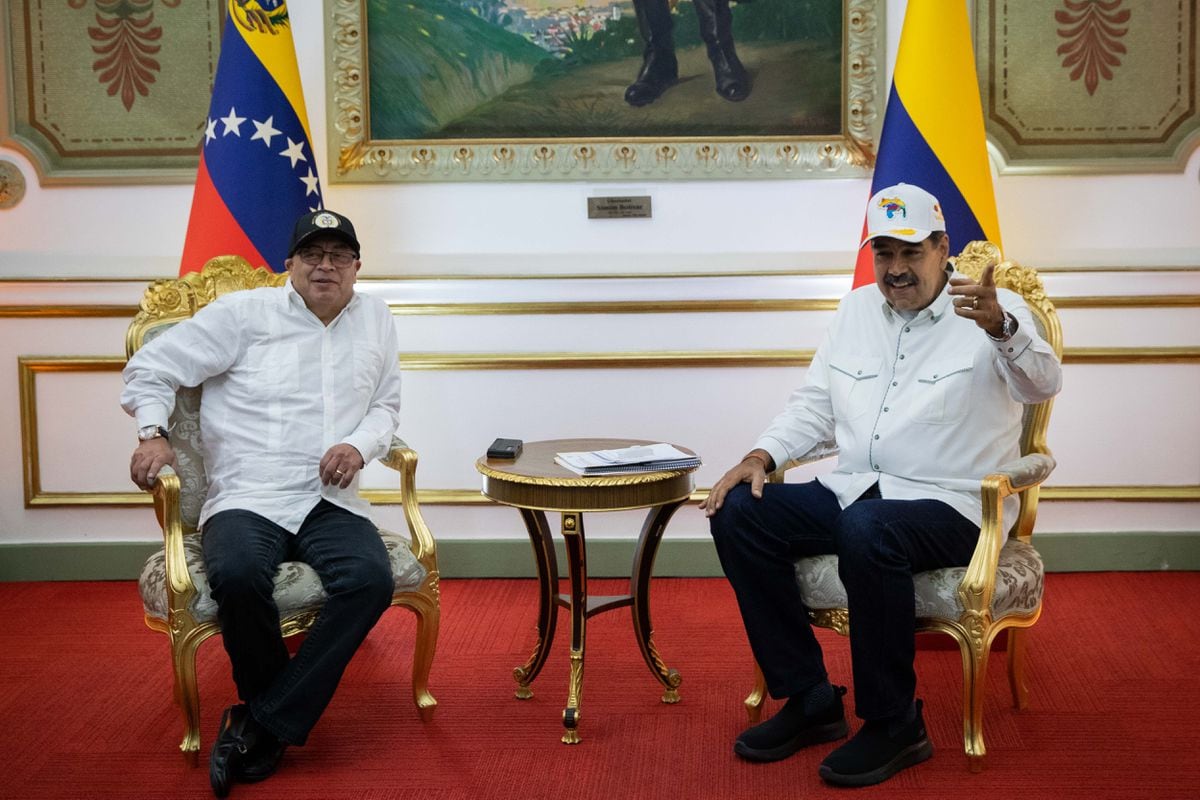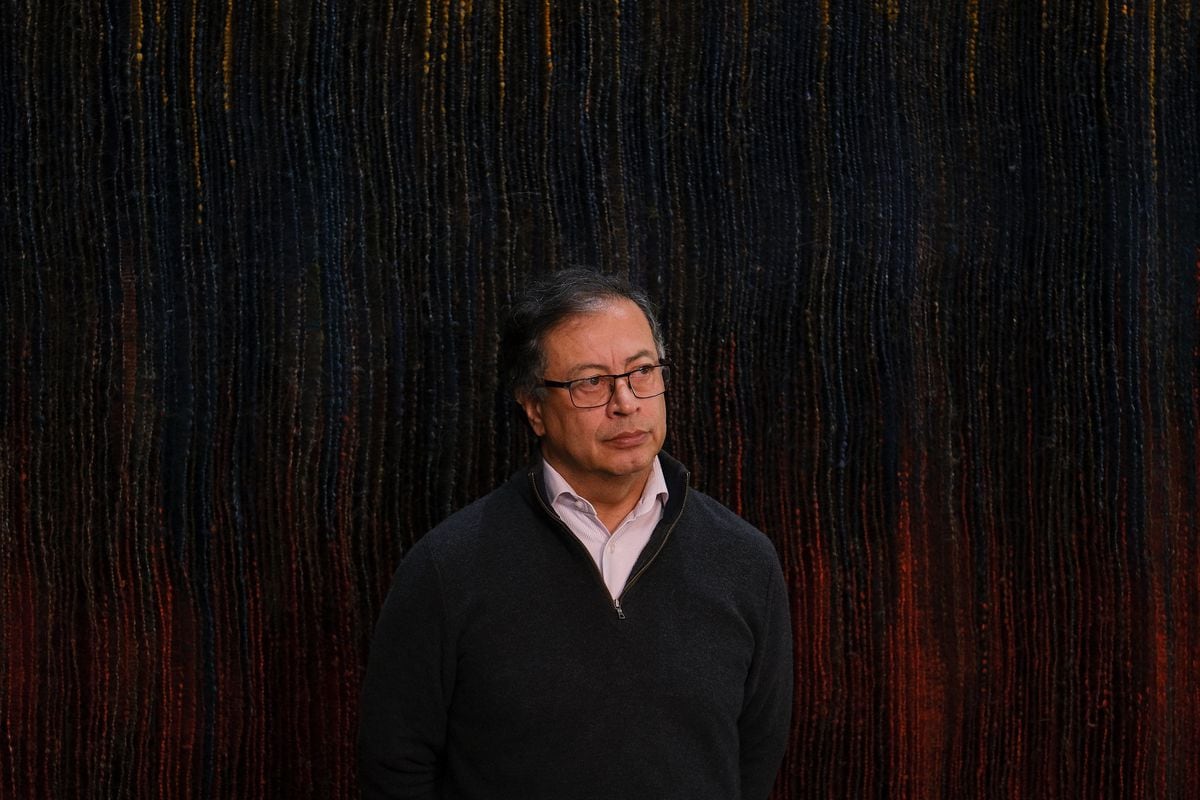Colombian presidential candidate Gustavo Petro, together with Giorgio Jackson, head of Chile's legislative agenda, and Camila Vallejo, head of government, in Santiago, Chile, on March 10, 2022. COURTESY
Gustavo Petro, the rival to beat that marks the pace of the presidential campaign in Colombia, is already in Chile.
The left-wing leader, a striking guest this Friday at the investiture of Gabriel Boric, crowns with his visit a particularly active international agenda on the eve of Sunday's legislative elections, in which the coalition that supports him must endorse the favoritism he has shown in the polls.
The candidate for the Historical Pact has divided his time this year between the electoral debates, going out to massive events in the public square and several trips abroad to meet with personalities that have allowed him to soften his image.
Petro has already met, among others, at the Holy See with Pope Francis and in Madrid with Pedro Sánchez, the President of the Government of Spain, and several ministers from his cabinet.
Those interviews, in particular, generated a small political storm in Colombia and annoyed the Executive of the conservative Iván Duque, who then requested similar treatment for all candidates.
The president is visiting the United States and will not attend Boric's inauguration, to which he sent a second-tier delegation.
Although the two leaders already had a first conversation in December, Duque's absence contrasts with the harmony he has exhibited on several occasions with the outgoing president, Sebastián Piñera.
In Colombia, his visit to the border city of Cúcuta in February 2019 on the occasion of the failed attempt to enter aid into Venezuela by opposition leader Juan Guaidó is well remembered.
Similar to his agenda in Spain, Petro met this Thursday at the University of Chile, in Santiago, with several members of Boric's cabinet.
Among others, the spokeswoman for the new government, the former communist deputy Camila Vallejo;
the head of the Secretary General of the Presidency, Giorgio Jackson;
the Minister of Health, María Begoña;
and Maya Fernández Allende, Minister of Defense and granddaughter of Salvador Allende.
The group is part of the circle closest to Boric, who will receive Petro this Friday.
"We have come together in a series of very interesting theses, with the essentially feminist and feminine cabinet, and in a government that intends to be part, hopefully with us, hopefully with Brazil, of a new Latin American leadership," she declared.
In a recent interview,
At just 36 years old, Boric will be the youngest president in the history of Chile and enjoys sympathy in the region.
The former student leader wants to expand the role of the State towards a welfare model and is a staunch critic of the neoliberal model, in which he agrees with Petro.
The Chilean, however, will lead a feminist government with a team of 14 women and 10 men, while Petro has maintained a problematic relationship with the feminist movement throughout his campaign.
The former mayor of Bogotá, who in his youth belonged to the extinct M-19 guerrilla, still arouses resistance in various sectors of society.
Although he lost in the second round against President Duque four years ago, he obtained more than eight million votes (43%), and in practice has been campaigning ever since.
On this occasion, this active foreign agenda has allowed him to rub shoulders with other leaders and project a more presidential image, while the other pre-candidates, who for now are about twenty, have been limited to referring to foreign policy issues in the electoral debates without leaving the country.
Along the way, the candidate for the Historic Pact has sought to distance himself from any link with the Chavista regime in neighboring Venezuela, with which his opponents insist on associating him.
Petro has proposed stopping oil exploration as part of a transition to a decarbonized economy, and argues that this is contrary to the Venezuelan model.
In contrast, he has sought to be linked to Boric.
"Petro is trying very skillfully to establish recognition at the international level that the entire right-wing campaign to stigmatize him and to associate him with Castrochavism has sought to ignore," says Arlene Tickner, professor of international relations at the Universidad del Rosario, in Bogotá.
“Unlike the other candidates, it should be recognized that it is an intelligent strategy that has been interesting.
It remains to be seen how this affects the perceptions of him at the national level, since the international plays little role in the decisions of voters, here and around the world.”
Boric's investiture takes place just two days before the Colombian legislative elections, which coincide with the so-called inter-party consultations, a kind of primaries in which the three coalitions that bring together the large blocks of the left, center and right define their candidates. presidential.
In the strictest sense, Petro is still a candidate, but no observer doubts that he will win the consultation of the Historical Pact, a motley alliance tailored to him.
The next May 29 will be the first round of the presidential elections and, if no candidate obtains more than half of the votes, there will be a second round on June 19.
Subscribe here
to the EL PAÍS América
newsletter
and receive all the key information on current affairs in the region




/cloudfront-eu-central-1.images.arcpublishing.com/prisa/U47VQFQW4FGCBFYMTUPCMC5PKE.jpg)
/cloudfront-eu-central-1.images.arcpublishing.com/prisa/66E5ZJUDZGT5AWIW7USKEZRE4A.jpg)


/cloudfront-eu-central-1.images.arcpublishing.com/prisa/MAVSIP6MF252ZKL4ZEZAPMSUPQ.jpg)




/cloudfront-eu-central-1.images.arcpublishing.com/prisa/KMEYMJKESBAZBE4MRBAM4TGHIQ.jpg)

